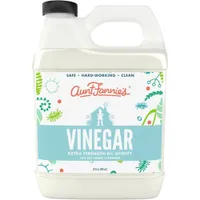8 things people with nice-smelling kitchens always do – according to professional cleaners
The secret to a fresh-smelling kitchen is paying close attention to the finer details, according to the experts

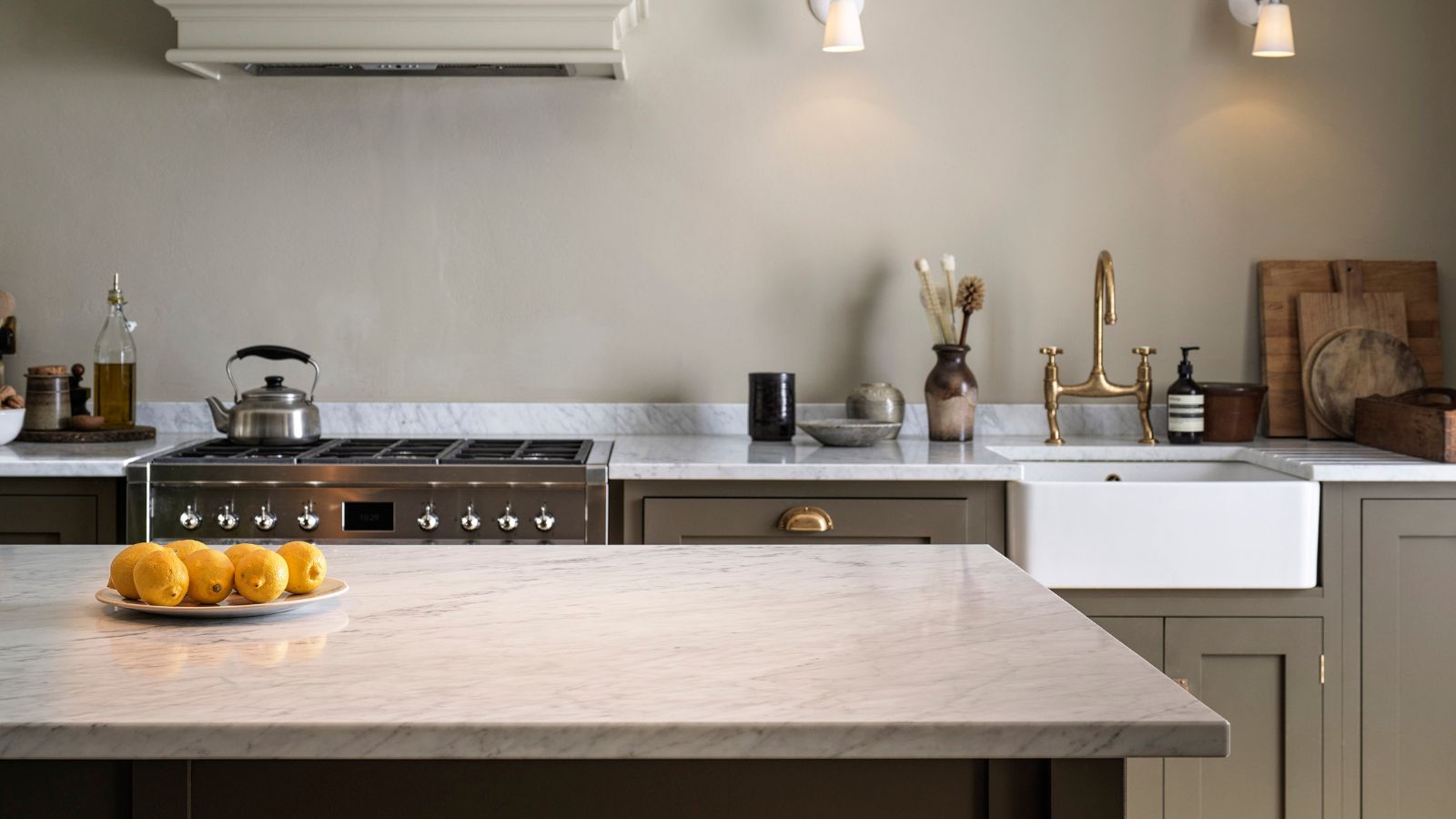
- 1. Regularly launder dish towels and cloths to prevent bad odors
- 2. Mop floors with fragranced products
- 3. Add in a fresh fragrance
- 4. Avoid stagnant water
- 5. Wash dishes regularly to prevent them from piling up
- 6. Wash counters with an anti-bacterial
- 7. Scrub shelves and cabinets to remove odor-causing spills and dust
- 8. Freshen up sinks and drains with baking soda and vinegar
- FAQs
Kitchens are particularly prone to bad smells and lingering odors, so how is it that some kitchens always smell so good? And how do we achieve the same in our own homes?
As much as we want the solution to be lighting a candle and leaving it at that, it all comes down to cleaning a kitchen regularly and thoroughly, cleaning experts say.
From deep cleans to everyday cleaning tricks, this is what you need to do for a kitchen that always smells fresh.
Things people with nice-smelling kitchens always do
Although there are plenty of rapid cleaning methods to cut kitchen cleaning times in half, for a nice-smelling space you really want to pay close attention to the finer details and clean regularly too, not just once a week.
1. Regularly launder dish towels and cloths to prevent bad odors

A surprising cause of bad odors in our kitchens can be our towels and cloths, especially if you wash up by hand and skip the dishwasher, says Ryan Knoll, cleaning expert and owner of Tidy Casa.
‘Damp, used towels can contribute to unpleasant odors. Regularly washing with a pleasantly scented laundry detergent, such as Downey’s Rinse and Refresh (available at Walmart) to remove odor residues, and thoroughly drying towels help keep these odors at bay.’
Downy Rinse & Refresh Cool Cotton | $6.99 at Target
Downy Rinse & Refresh is a breakthrough laundry odor remover that helps rinse away the smelly residue trapped within fabric fibers.

Ryan Knoll is the CEO and founder of Tidy Casa, a cleaning service that now spans multiple states across the US.
2. Mop floors with fragranced products

Kitchen floors are another common cause of odors that we may not think about. Spills and crumbs can sometimes go unnoticed, so regular mopping with deodorizing products with their own fresh scent can help to free our kitchens from lingering smells.
Design expertise in your inbox – from inspiring decorating ideas and beautiful celebrity homes to practical gardening advice and shopping round-ups.
‘Linoleum, vinyl or artificial wood floors are ideal for keeping clean-up simple,’ suggests Tanu Grewal, chief cleaning officer at Cloralen, ‘and while kitchen rugs can warm up the space, they absorb lots of spills and odors, so should be avoided.' If you like the warmth and texture that a rug provides, you could consider a washable rug such as a kitchen rug from Ruggable.
‘My favorite way to give vinyl or laminate floors a deep clean that has a long-lasting fragrance is by using a pine oil-based cleaner, such as Pinalen cleaner, at Amazon,’ she shares. ‘Pine oil is gentle on materials but provides a reliable clean and smells incredible.’
3. Add in a fresh fragrance

Besides using fragranced kitchen cleaners, adding in a source of fragrance can help to mask odors, too. In a kitchen, there are a few ways to achieve this, from lighting your best candle, using a scent spray, or even ‘freshly baking a meal or dessert before settling in for guests or to relax,’ suggests Kathy Cohoon, operations manager at Two Maids & a Mop.
If you want to add in some kitchen decor that also makes your room smell nice, then consider fresh cut flowers, adds Andrea Hundley, designer and founder of Design Morsels: ‘Fresh flowers not only brighten up a bathroom, but they release natural fragrances too. Hydrangeas, gardenias, and peonies are great options we use for our clients for their pretty petals and heady scents. ‘Just remember to change the water every two to three days to prevent bacteria growth which causes unpleasant odors.’
4. Avoid stagnant water
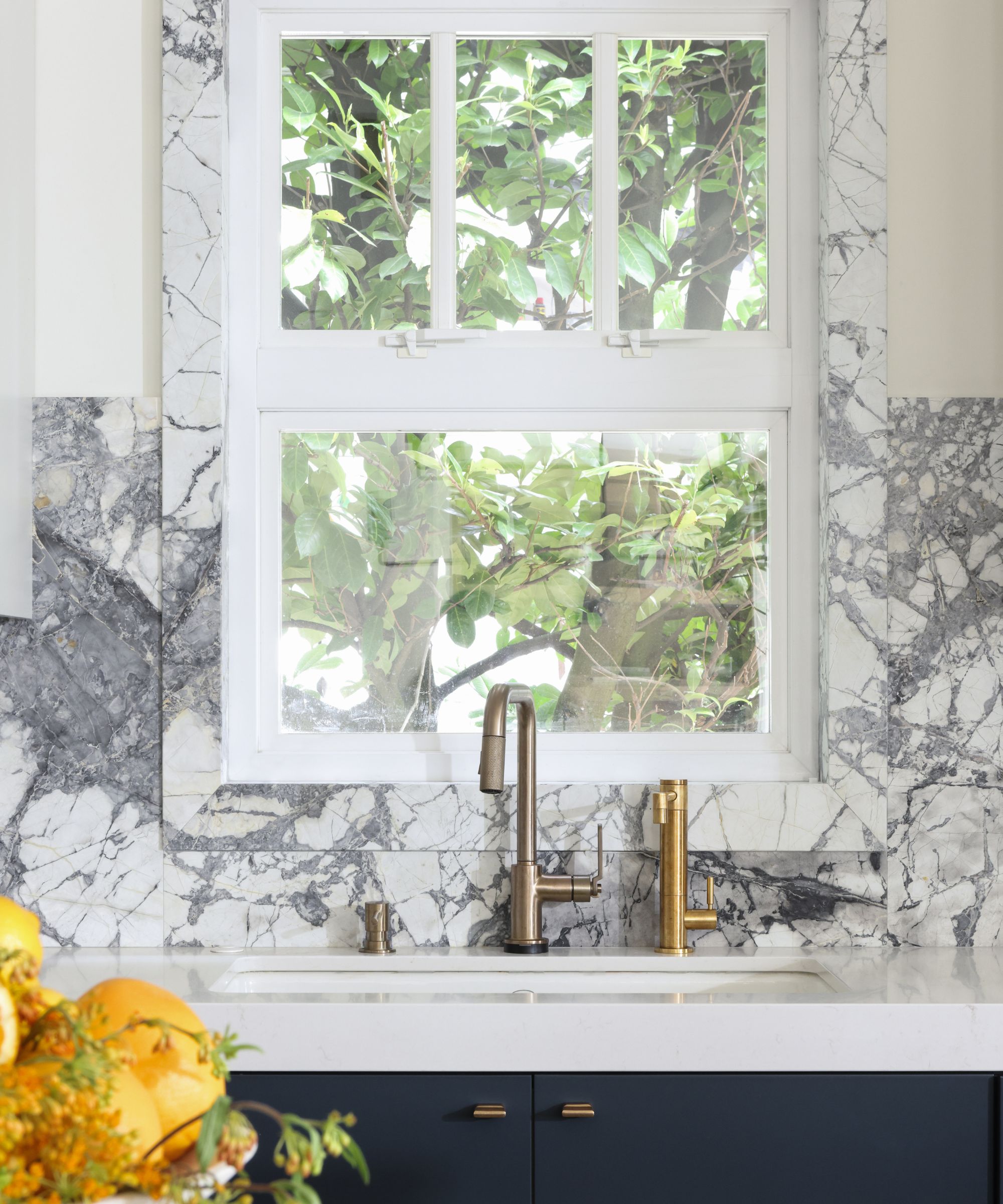
Speaking of stagnant water, it should be avoided at all costs in your kitchen, from changing out flower vase water to making sure your drains drain correctly, reminds Tanu Grewal, chief cleaning officer.
‘Accidentally leaving the window open during a rainstorm, spilling water that didn't get completely cleaned up, etc. can make for a breeding ground for mold and germs leading to bad smells.’
5. Wash dishes regularly to prevent them from piling up
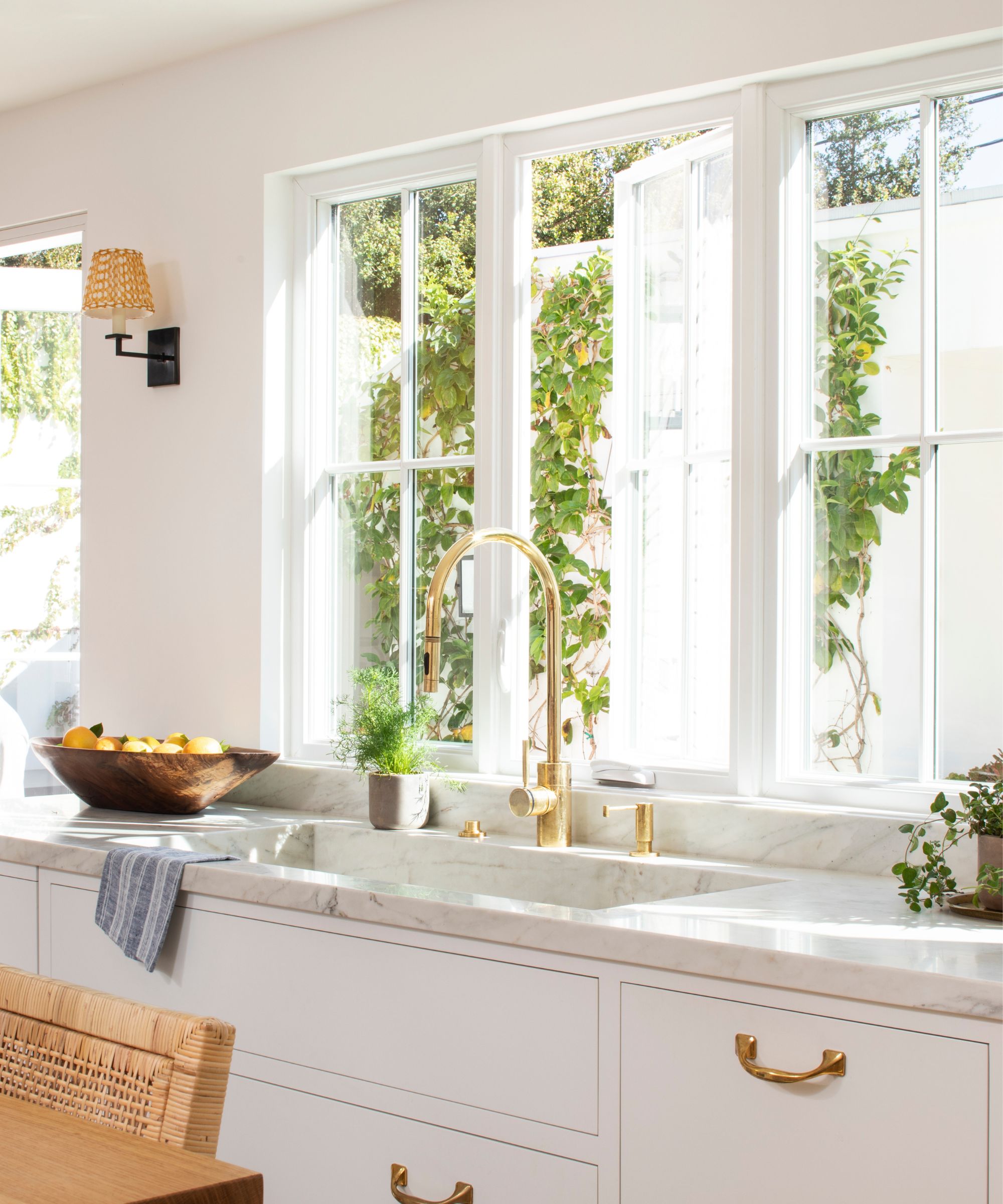
It should be obvious but used dishes covered in food obviously smell bad, especially if they have been left to pile up in the sink, on the counter, or even in a dishwasher. They should ideally be washed twice a day, and always before you go to bed to make sure bad odors are not left to develop overnight.
6. Wash counters with an anti-bacterial
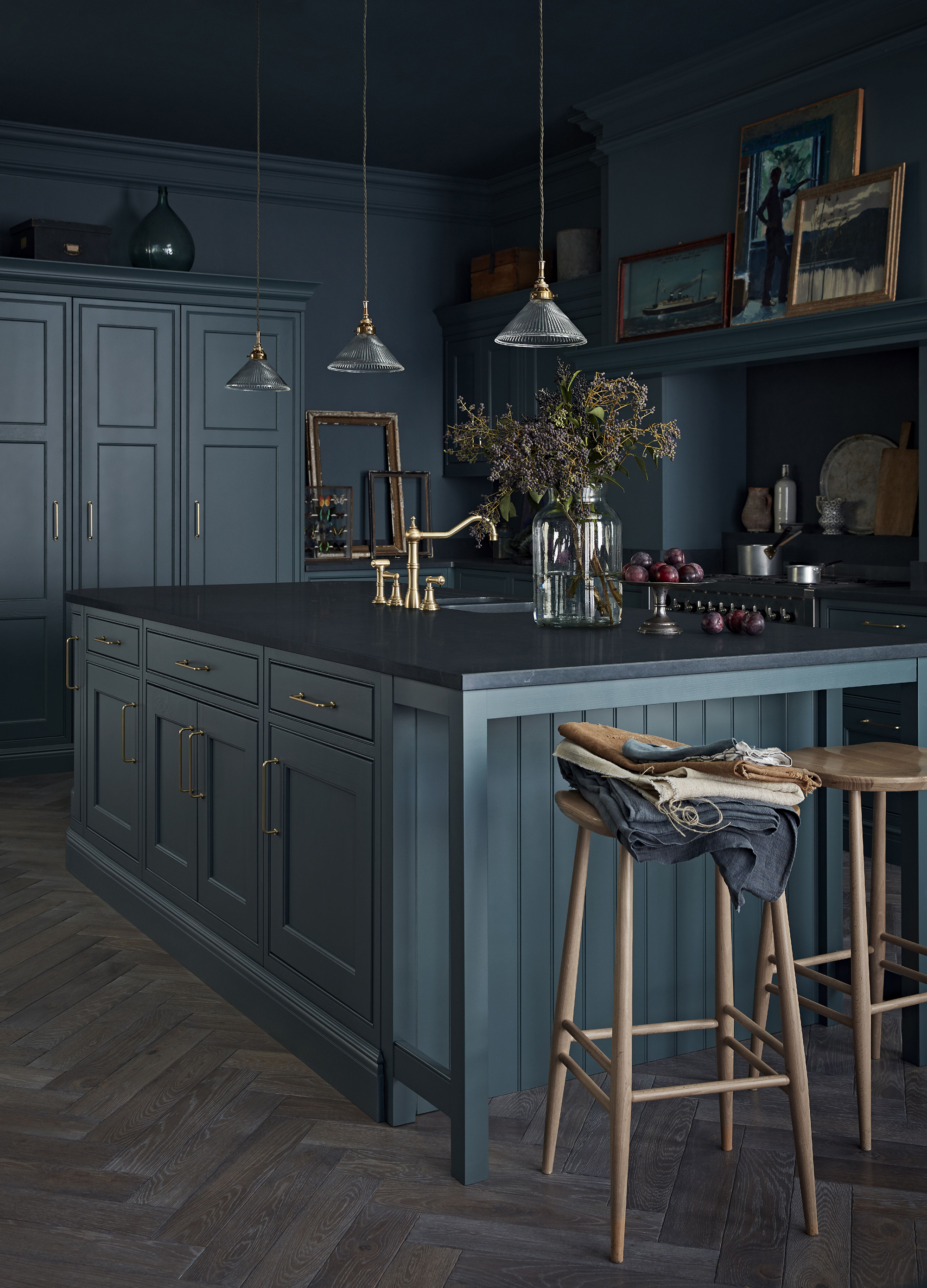
Wiping crumbs away from your kitchen counters is a good start for a clean, nice-smelling kitchen, but using an antibacterial daily is vital to get rid of odor-causing bacteria and germs that we can’t see. It is also ‘crucial for a healthy cooking environment, and should be the first thing you clean in a kitchen,’ warns Prerna Jain, cleaning expert at Ministry of Cleaning.
‘Cleaning countertops as the first step in your routine helps mitigate cross-contamination,’ she begins. ‘Use a mild, non-abrasive cleaner suitable for your countertop material.
‘Wipe down the countertops with a microfiber cloth or sponge, paying attention to corners, edges, and seams where crumbs may be hiding. For stubborn stains, create a paste using baking soda and water. Apply the paste to the affected areas, let it sit for a few minutes, then gently scrub with a soft brush or cloth.
‘Rinse the area thoroughly with clean water and finish by using a dry cloth or paper towel to remove excess moisture and polish the countertops, leaving them streak-free and radiant.’
7. Scrub shelves and cabinets to remove odor-causing spills and dust
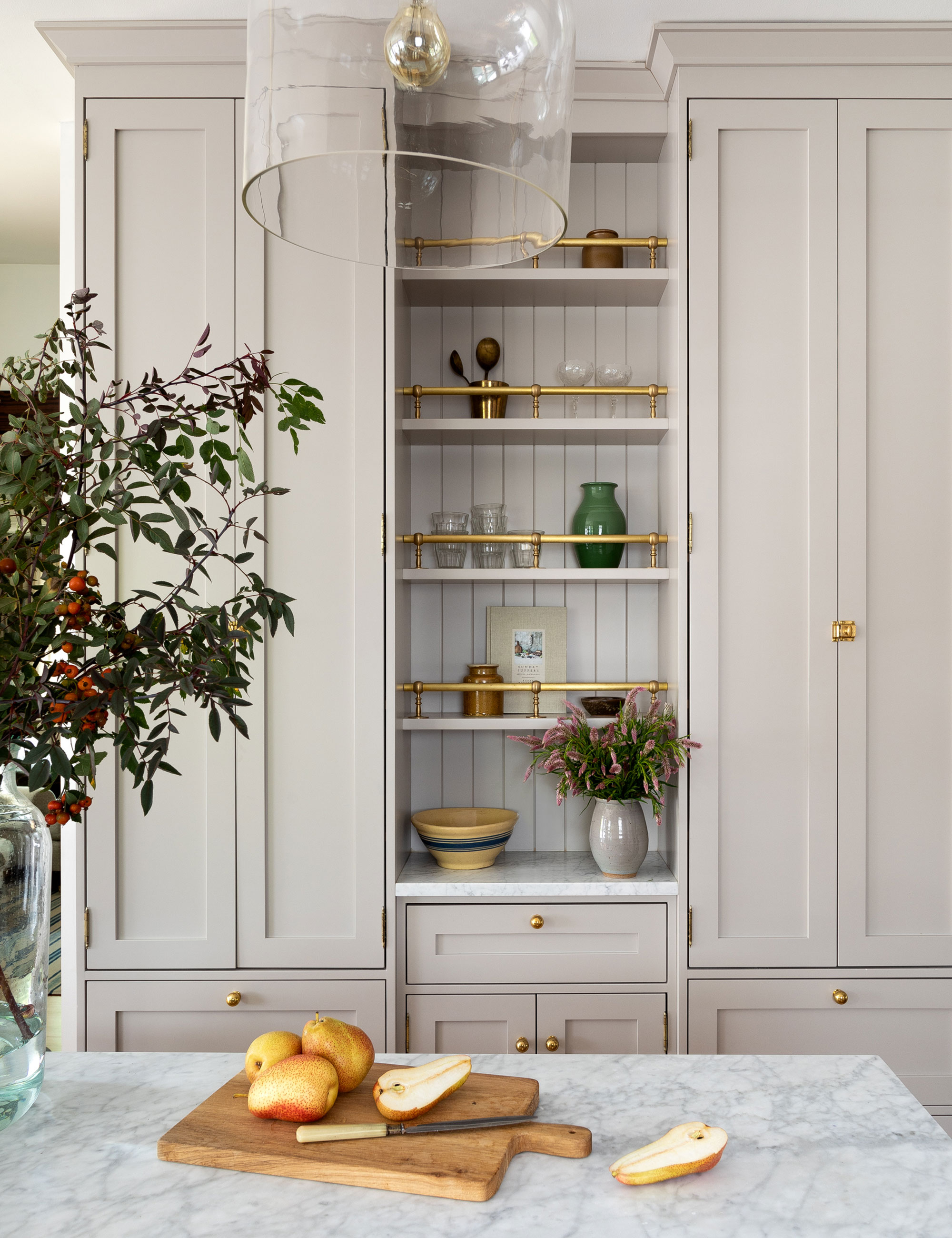
Kitchen cabinets and kitchen shelving may not be used for food prep, and may even be enclosed, but leaking bottles and jars can lead to sticky, odor-causing stains that we don’t see until we climb up on a step. People whose kitchens always smell good make sure to scrub these spots regularly and clean jars to prevent these stains from occurring in the first place, says Steven Ip, professional cleaner and founder of Cleanzen Cleaning Services.
‘These areas are prone to dust and mold accumulation and are also areas of clutter and trash as well as possible homes to pests. To start, take out every item from your cabinet and go through the pile. decluttering anything expired or unused. Then, get a wet microfiber cloth and wipe down all the cabinets starting from top to bottom. You can either use soapy water or diluted vinegar. After wiping, let the cabinets dry before organizing everything again.’
The same goes for cleaning your fridge and its shelves too.
8. Freshen up sinks and drains with baking soda and vinegar

Cleaning your kitchen sink is important for more than just the aesthetics of your kitchen – it can help to prevent bad odors and help keep the rest of your kitchen cleaner too by preventing cross-contamination, says Itamar Madden, green cleaning expert at GreenLife.
‘Begin by removing any dishes, sponges, or debris from the sink and rinsing the area with warm water to remove loose particles,’ Itamar begins. ‘It can help to sprinkle baking soda or a mild dish soap onto a damp sponge or cloth before scrubbing the sink gently, paying attention to the sides, corners, and the drain area where food particles tend to accumulate. If needed, remove the food catcher and clean this too. Rinse thoroughly with warm water to remove any soap residue.
‘For extra sanitation, you can disinfect the sink by spraying a mixture of equal parts water and vinegar or by using a mild bleach solution (follow manufacturer instructions),’ he adds. You can deodorize and clean a kitchen sink drain with white vinegar and boiling water too if you notice unpleasant odors rising when you pour anything down the plug.
‘Finish the job by wiping down the faucet and handle using an appropriate cleaner and drying the sink and faucet with a clean cloth to prevent water spots.’
6% Distilled White Cleaning Vinegar | $11.99 at Amazon
This specially formulated white vinegar with cleaning strength at 6% acidity kills mold and breaks down grease, mineral deposits, lime scale, and built-up film for a clean space with no residue left behind and no rinsing required.
FAQs
Why does my kitchen always smell?
If your kitchen always smells bad, there may be an underlying cause that you have not spotted. It may be that there is some spilled or forgotten food going bad out of sight, your drains may need cleaning or unblocking, and your dishwasher may need cleaning, among other things. Spend a day systematically working around your kitchen, cleaning, decluttering, and unclogging until you find the source, or hire a professional for help.
Do air purifiers help with bad kitchen smells?
Air purifiers with gas filters can help to minimize bad odors lingering in the air, but it is always best to treat the source of the smell first. It is a good idea to clean your kitchen regularly, especially after cooking, and paved piling dishes and pots up on counters to help cooking smells dissipate quickly and naturally.
Besides cleaning your kitchen to remove bad odors, you should take steps to prevent bad odors from taking hold in the first place for a kitchen that always smells nice. It is a good idea to ventilate the kitchen when you are cooking, using a range hood, or opening a window. It also helps to clean the space as you work, and empty the trash as soon as it fills up, using a trash can with a solid lid or enclosing your trash can inside a kitchen cabinet to keep smells contained.

Chiana has been at Homes & Gardens for two years and is our resident 'queen' of non-toxic living. She spends most of her time producing content for the Solved section of the website, helping readers get the most out of their homes through clever decluttering, cleaning, and tidying tips. She was named one of Fixr's top home improvement journalists in 2024.

